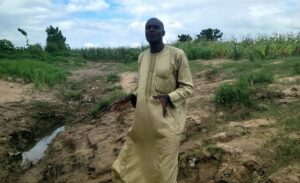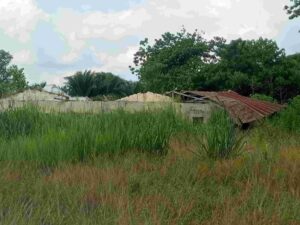Nigeria is just hours away from the polls in which it will be electing the next President of the Federal Republic.
The heady moment has long been described by analysts and public affairs commentators as a three horse race between the Presidential Candidate of the Peoples Democratic Party (PDP) former Vice President Atiku Abubakar, that of the ruling All Progressives Congress (APC), Bola Tinubu and Labour Party’s star boy, Mr Peter Obi.
Presidential pre-election polls mostly conducted online has since reflected this slant, systematically edging out candidates of the New Nigeria Peoples Party (NNPP) Rabiu Musa Kwankwaso, that of the Africa Action Congress (AAC) Omoyele Sowere among other bigwigs vying for the Nations top job.
While Premise Data Poll “for Bloomberg,” ANAP Foundation/NOI Polls, Stears Business, Nextier, Redfield and Wilson Strategies, Nigeria Human Right Community (NHRC), and June Group Research and Council for African Security Affairs (CASA) have variously tipped Peter Obi, Bola Tinubu and Atiku Abubakar to win respectively, the independence and neutrality of some of these pollsters remain largely questionable following results from open source investigation.
Investigation on WhoIs database lookup shows that the Redfield and Wilton Strategies domain was registered by the same registrar, with the same phone number (+1.4806242599), same Fax (+1.4806242598), the same City (Tempe), same State (Arizona), same postal code (85284) in the same country (United State of America) with that of Premise Data Corp (premise.com) yet both released polls at various times that seem independent of each other but amplified the same optics. However, while premise was created in 1994, Wilton was created in 2020 (See slide 15 and 16 on this link: https://bit.ly/3XWWQy8)
On the other hand,a poll said to have been conducted for Bloomberg by the same Premise Data, lacked editorial endorsement on Bloomberg’s primary platform – bloomberg.com. A visit to Bloomberg’s website and basic search of the key word of the candidate touted to win by the said poll turned up no result that could be associated with Bloomberg’s editorial or even a news report on the poll and or it’s result. The only result found was a feature article written by William Clowes, Bloomberg’s reporter in Nigeria which analysed and gave insight on all the other polls conducted by the major pollsters including that of premise data. Curiously the piece referred to the supposed Bloomberg poll by the organiser’s “Premise Data” without any other form of endorsement or association to Bloomberg. However, the poll result was shared by Bloomberg on twitter, an activity that is subject to the judgment of social media managers not an editorial board.
Similarly, the founder of ANAP Foundation is a successful businessman cum politician whom besides openly promoting the Presidential candidate that is said to likely win from the ANAP/NOI Polls, has once publicly endorsed him.
While Stears Business polls came clean without any traceable digital footprint of partisan inclination, the same cannot be said of that of Nextier. Besides the fact that registrars and admin of its website are from the same ethnic extraction as the candidate it projected to win in the polls, the fact that the founder of the Nextier hails from the same state and attended the same University as the candidate, cannot be ignored. Besides, its array of clientele includes “political parties” as clearly stated on its company profile being a profit oriented organisation. (See slide 11 on this link: https://bit.ly/3XWWQy8)
Also, while that of NHRC claims 6 months of research, random sampling, interviews in Yoruba, Igbo, Hausa, Pidgin from all 774 LGAs with 19,365 it does not provide information of methodology, or provide a detailed breakdown of the numbers in each state or geopolitical zone.
It does not even provide the number of undecided or unresponsive participants. Yet, the breakdown of respondents does not add up. The poll claims 19,365 respondents were interviewed, yet when you add up their numbers, you get 19,947 respondents and 103% (instead of 100%).
According to the London School of Economics and Political Science (LSE), Opinion polls help politicians understand what the public wants, and the public understand who is popular at the ballot box. But when predictions of the UK 2015 General Election were widely off the mark, some began to question their use.
In the lead up to an election, political pundits and interested members of the public will refer to opinion polls to see how results might land. But while polls have been viewed as a reliable guide, recent failures – including predictions for the 2015 UK General Election – have been viewed as being potentially damaging for the industry.
In the aftermath of the 2015 surprise, Professor Jouni Kuha, a professor in LSE’s Department of Statistics and an expert in survey methodology, was one of those appointed to an inquiry tasked with understanding what had gone so wrong.
Opinion polls, he explains, are a survey of public opinion from a particular sample group, and as such can be useful in informing politicians about the views of specific groups of people. In practice, pollsters need to balance the cost of polling a large sample against the reduction in sampling error, and so a typical compromise for political pollsters is to use a sample size of 1,000-10,000 respondents.
From the angle of open source investigation, dependent opinion polls or those somewhat associated to the candidate they are touting to win can be viewed from the angle of influence operations and how these operations in form of media narratives are used as a weapon to control people and societies by altering beliefs, changing voting behavior, or inspiring political violence.
Based on the foregoing, electorates should therefore be careful about relying on pre-election opinion polls as only the Independent National Electoral Commission (INEC) has the mandate to conduct and announce election results.
While Political Parties are dotting the I’s and crossing the T’s with hope of victory, Nigerians should endeavor to adhere to electoral rules and guidelines so as to avoid being disenfranchised during the election as we contribute our quota towards a free, fair, and credible poll.
As we head to the polls, let’s all remember that Nigeria is bigger than whichever candidate we may be fronting for. In the spirit of patriotism, let’s endeavor to keep our emotions and actions in check, let’s endeavor to share only credible and verifiable information.
Dahiru Lawal is Head of Fact-Checking and Special Investigations at PRNigeria and Project Manager Grassroots Investigative Reporting at Daily Nigerian.



